International
“Milei de Floripa”, the Brazilian candidate who joins the chainsaw trend
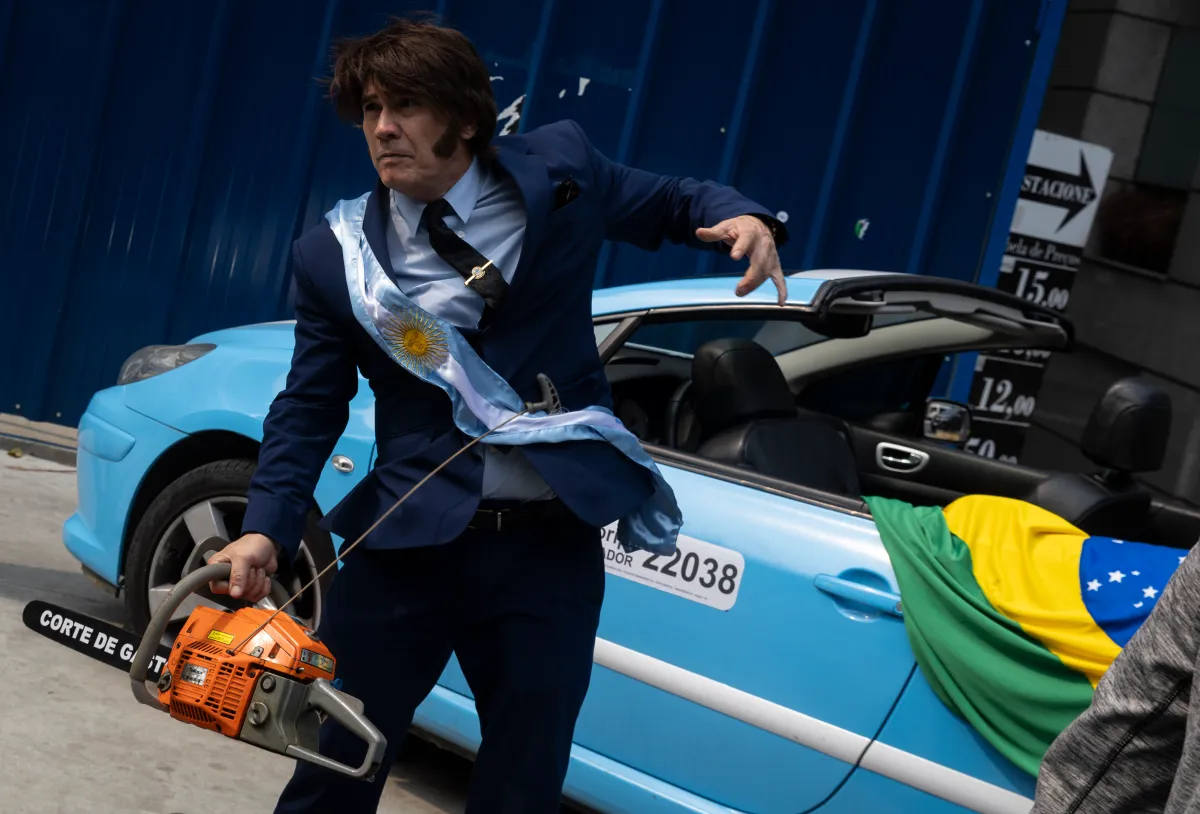
Ademar Rodrigues Meireles went down the stairs of his house rented for a few days in São Paulo completely dressed as if he were the Argentine president, Javier Milei, and, at times, his way of expressing himself was identical, even speaking in another language.
Better known as the ‘Milei de Floripa’, Ademar is a candidate for municipal councilor for the Liberal Party (PL) of former Brazilian president Jair Bolsonaro in Florianópolis, capital of the state of Santa Catarina, in the elections of October 6.
A place of almost 8 million inhabitants in the south of the country that shares the border with the Argentine province of Misiones and, as the politician indicated, “is full of Argentines.”
The first time he saw the Argentine economist he was shocked by his “theatrical and dramatic figure”, then one day he decided to wear his wig and noticed that his image caused a furor in the streets and people stopped him to take pictures.
That’s how he began to attend all the demonstrations personified as Javier Milei, adding a garment for the occasion: first his wig, then his characteristic sideburns, a chainsaw with phrases and even the presidential band with the Albiceleste flag.
Laughing and with a Buenos Aires tone he said “there is no water” – referring to the famous “there is no money” – and looked at one of his advisors as a sign of complaint. He wanted to conduct the entire interview in Spanish since he considered that this way he “transmitted greater emotion.”
Ademar decided, before retiring, to throw himself fully into politics. According to him, to defend “the ideas of freedom” and fight a cultural, social and political “war” that is being lived in the world.
“It is necessary that we make the decision to be in all places as the left has done that for many, many years was taking the university, the culture, the artists (…) One thing is certain: those who are not in politics are dominated by those who are,” he said.
But his clothing, criticized by many people, hides a greater meaning: “In my private life I am Ademar, for me that is very clear. But this is a theater, a political theater. All politicians do theater. Politicians in elections pretend to be poor but they are not.”
And he continued: “It’s a cultural war, I’m dressed in the ideas and what Milei represents, like an icon, like an idol of the right. (…) We are going to use the same weapon that the left uses, which is art.”
Like his political idol, the Brazilian is an economist and said that he has two dogs, although he only highlighted his Rottweiler whom he referred to as “the guardian” of the hacienda.
With his chainsaw next to it, which has the inscription in Spanish ‘cut of expenses’ on one side, the ‘cosplayer’ candidate said that “Brazilian social contracts are broken” and raised the need for a new “liberating” constitution in Brazil since the current “has been very disrespectful.”
Last Friday, for an hour, Paulista Avenue, the most important in São Paulo, collapsed with cars and vans plotted with his face in a caravan celebrating his arrival in the city, where he went to participate in a demonstration called by Bolsonaro a day later.
Some passers-by laughed when they saw him, others threw an insult, while many greeted him fervently shouting “long live freedom, fuck.”
International
Ukraine declares nationwide energy emergency amid russian attacks and extreme cold
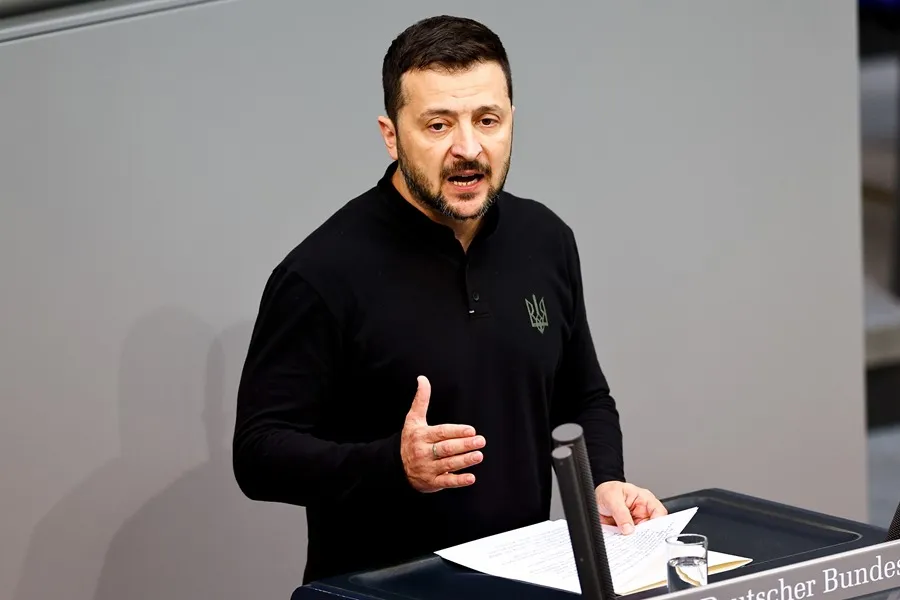
The Ukrainian government on Wednesday declared a nationwide energy state of emergency amid continued Russian military attacks and extreme winter weather, with nighttime temperatures dropping as low as minus 18 degrees Celsius.
“The consequences of Russian attacks and worsening weather conditions are severe (…) Overall, a state of emergency will be declared for Ukraine’s energy sector,” Ukrainian President Volodymyr Zelensky said in a statement posted on social media following a meeting with senior officials.
Zelensky announced the creation of a “permanent coordination headquarters” to manage the crisis in the capital, Kyiv, and tasked former defence minister and current energy chief Denys Shmyhal with overseeing support efforts for affected individuals and communities, including addressing power outages, heating shortages and other “practical issues.”
“There are many problems that require urgent solutions,” the president said, noting that repair crews, energy companies, municipal services and the State Emergency Service are working “around the clock” to restore electricity supplies. Kyiv has been particularly affected after Russian strikes last Friday disabled key parts of the power grid, as daytime temperatures hover around minus 12 degrees Celsius and plunge to minus 18 at night.
Zelensky added that public authorities will “maximize efforts with partners to obtain the necessary equipment and additional support,” while the government will ensure “maximum deregulation of all processes” to speed up the connection of backup power equipment to the grid. He also confirmed that work is underway to significantly increase electricity imports into Ukraine.
The Ukrainian leader further instructed his Cabinet to review curfew regulations in light of the extreme cold, arguing that citizens must have the greatest possible access to assistance centers, while businesses should be given flexibility to plan their operations according to the state of the energy system.
International
France joins Denmark’s ‘Operation Arctic Resistance’ in Greenland amid U.S. tensions

French President Emmanuel Macron confirmed in the early hours of Thursday (Wednesday afternoon in El Salvador) that France will take part in “Operation Arctic Resistance,” after Denmark announced it would expand its military presence in Greenland amid rising tensions with the United States over Washington’s stated ambitions regarding the semi-autonomous territory.
“At Denmark’s request, I have decided that France will participate in the joint exercises organized by Denmark in Greenland, ‘Operation Arctic Resistance,’” Macron said in a brief message posted on social media at 5:18 p.m.
The French president added that “the first French military elements are already on their way, with others to follow,” though he did not specify the number of troops being deployed or the scale of France’s planned contribution.
The governments of Sweden, Norway and Germany have also confirmed the deployment of military contingents to Greenland. Germany’s armed forces will send a 13-member reconnaissance team to the Greenlandic capital, Nuuk, to take part in a mission scheduled to run from Thursday through Saturday, according to the German Ministry of Defence.
Denmark’s announcement came shortly before a Danish delegation met at the White House with U.S. Vice President JD Vance and Secretary of State Marco Rubio to discuss Washington’s plans regarding Greenland. Copenhagen said the military activities would be carried out “in close cooperation with NATO allies.”
International
Iran closes airspace amid U.S. threats and deadly nationwide protests
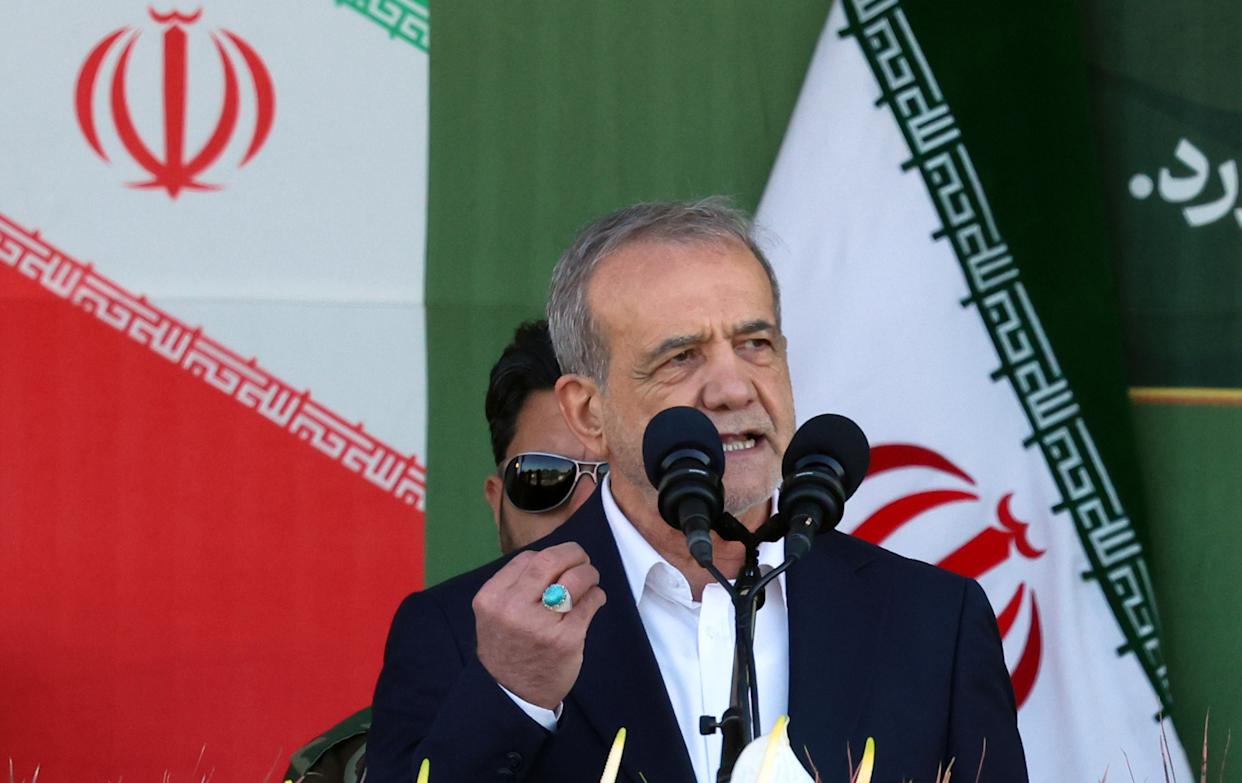
Iranian authorities closed the country’s airspace in the early hours of Thursday, according to data from flight-tracking website FlightRadar24, amid growing threats of a possible U.S. attack as protests across the country continue and have reportedly left thousands dead.
According to FlightRadar24, the Iranian government suspended all flights to and from the country, except for international flights that have received special authorization. The notice was initially issued for a duration of just over two hours.
The move comes after U.S. President Donald Trump in recent days threatened to strike Iran if its security forces failed to halt the deaths linked to weeks-long protests that began in Tehran and later spread to other Iranian cities. Despite the threats, the White House said diplomacy remains Trump’s preferred option.
Speaking from the Oval Office on Wednesday, Trump claimed that “the deaths in Iran have stopped” and said there would be no executions of protesters following his warnings to Tehran. He added that his administration would seek to verify those claims.
“I’ve been told the deaths in Iran are stopping. They’ve stopped, and that there are no plans for executions,” Trump told reporters, cautioning that the United States would be “very upset” if those assurances proved to be untrue.
The statements contrast with reports from rights groups. The Norway-based NGO Iran Human Rights (IHRNGO) said on Wednesday that more than 3,400 people have been killed since the protests erupted. Meanwhile, Kurdish-Iranian rights group Hengaw reported this week that a 26-year-old Iranian man, Erfan Soltani, was facing execution as of Wednesday.
-

 International2 days ago
International2 days agoDeadly van accident near Brazil border leaves 11 dead in Bolivia
-
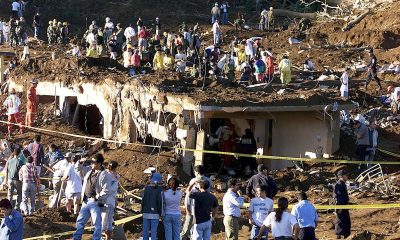
 Central America2 days ago
Central America2 days agoTaiwan’s $10 million donation after 2001 earthquakes allegedly diverted in El Salvador
-

 Central America2 days ago
Central America2 days agoU.S. and El Salvador maintain close partnership, embassy says
-

 International2 days ago
International2 days agoU.S. to host Danish and Greenlandic Foreign Ministers at the White House
-
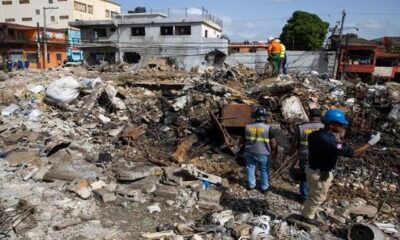
 International2 days ago
International2 days agoDominican court postpones hearing in deadly nightclub collapse case
-

 International2 days ago
International2 days agoPolice hunt gunmen after fatal shooting in Corsica
-
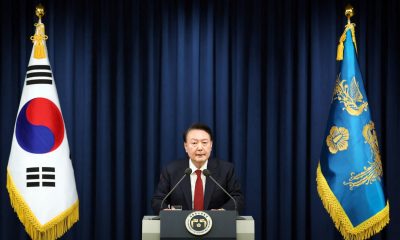
 International2 days ago
International2 days agoEx-President accused of bid to establish dictatorship as verdict nears in South Korea
-

 International2 days ago
International2 days agoVenezuelan opposition leader dedicates Nobel Prize to Trump
-
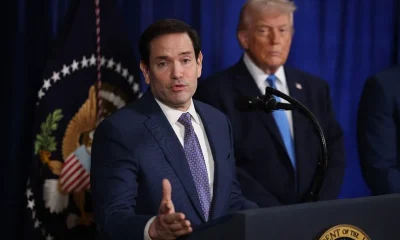
 International4 days ago
International4 days agoU.S. Issues Urgent Evacuation Call for Citizens in Venezuela
-
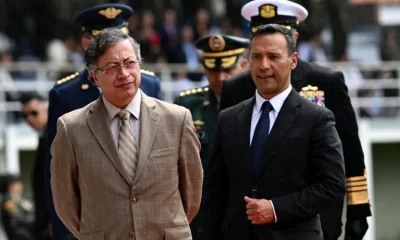
 International2 days ago
International2 days agoColombian Defense Chief Meets U.S. Officials to Advance Bilateral Narcotics Strategy
-
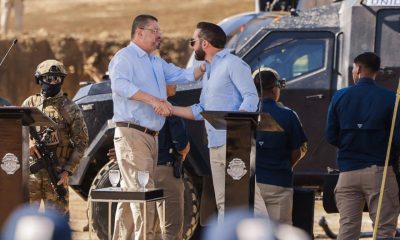
 Central America1 day ago
Central America1 day agoBukele warns crime can become a ‘parallel government’ during visit to Costa Rica
-
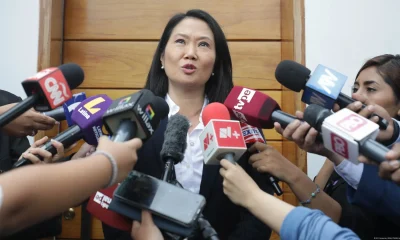
 International2 days ago
International2 days agoPeruvian Court Orders Definitive Dismissal of Money Laundering Case Against Keiko Fujimori
-

 International1 day ago
International1 day agoU.S. to suspend visa processing for applicants from 75 countries
-

 International15 hours ago
International15 hours agoIran closes airspace amid U.S. threats and deadly nationwide protests
-
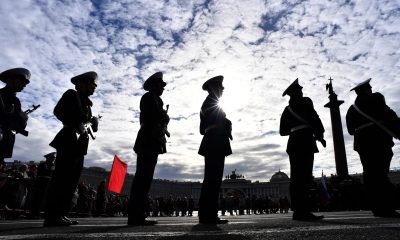
 International15 hours ago
International15 hours agoUK Intelligence estimates russian casualties in Ukraine at over 1.2 million
-

 International15 hours ago
International15 hours agoUkraine declares nationwide energy emergency amid russian attacks and extreme cold
-

 International15 hours ago
International15 hours agoU.S.–Denmark tensions escalate as Trump pushes NATO to back U.S. claim on Greenland
-
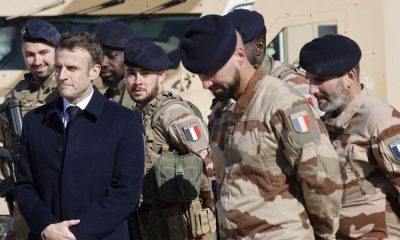
 International15 hours ago
International15 hours agoFrance joins Denmark’s ‘Operation Arctic Resistance’ in Greenland amid U.S. tensions
-
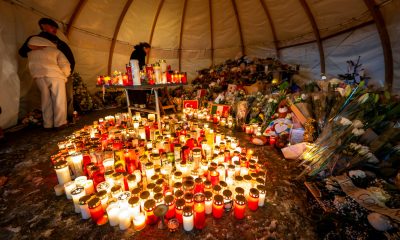
 International15 hours ago
International15 hours agoSwiss Canton of Valais Grants Emergency Aid to Victims of Crans-Montana Bar Tragedy
-

 International15 hours ago
International15 hours agoHillary Clinton skips Epstein inquiry as house panel threatens contempt charges
-

 International15 hours ago
International15 hours agoX moves to block Grok from creating sexualized images of real people amid legal scrutiny


























